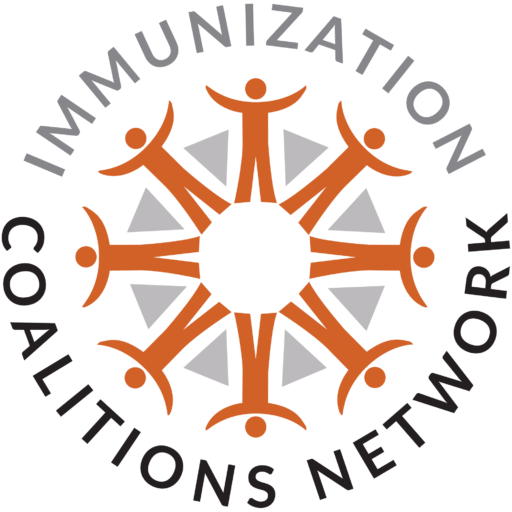Network News — September 24, 2014

Network News - September 24, 2014
Table of Contents
- Network webinar on influenza vaccination held September 11 is now online
- CDC publishes influenza recommendations for 2014–15 season; many resources are available to aid healthcare professionals in vaccinating their patients
- CDC publishes ACIP recommendations for use of PCV13 and PPSV23 vaccines in adults age 65 and older
- Reminder: October 15 is deadline to apply to host the 2016 National Conference on Immunization and Health Coalitions
Network webinar on influenza vaccination held September 11 is now online
On September 11, IAC sponsored a webinar for immunization coalition leaders, members, and anyone who collaborates with coalitions that featured the following four presentations:- Lisa A. Grohskopf, MD, MPH, CAPT, USPHS, medical officer, Influenza Division, CDC, and CDC lead for the ACIP Influenza Work Group, provided an overview titled "Update—ACIP Influenza Vaccine Recommendations for 2014–15"
- Heidi Parker, executive director, Immunize Nevada, described her coalition's influenza outreach in a presentation titled "InFLUencing Nevada to Get Vaccinated"
- Austyn Dukes, health communication specialist, CDC, shared new resources from CDC for the upcoming influenza season
- Diane Peterson, associate director for immunization projects, IAC, presented an overview of IAC's influenza-related handouts
- Complete webinar recording, including slides and audio
- Slide set (PDF) of Dr. Grohskopf's presentation
- Slide set (PDF) of Ms. Parker's presentation
- Slide set (PDF) of Ms. Dukes's presentation
- Slide set (PDF) of Ms. Peterson's presentation
CDC publishes influenza recommendations for 2014–15 season; many resources are available to aid healthcare professionals in vaccinating their patients
CDC published Prevention and Control of Seasonal Influenza with Vaccines: Recommendations of the Advisory Committee on Immunization Practices (ACIP)—United States, 2014–15 Influenza Season in the August 15 issue of MMWR. The first paragraph of the report is reprinted below. This report updates the 2013 recommendations by the Advisory Committee on Immunization Practices (ACIP) regarding use of seasonal influenza vaccines. Updated information for the 2014–15 influenza season includes 1) antigenic composition of U.S. seasonal influenza vaccines; 2) vaccine dose considerations for children aged 6 months through 8 years; and 3) a preference for the use, when immediately available, of live attenuated influenza vaccine (LAIV) for healthy children aged 2 through 8 years, to be implemented as feasible for the 2014–15 season but not later than the 2015–16 season. Information regarding issues related to influenza vaccination not addressed in this report is available in the 2013 ACIP seasonal influenza recommendations… Vaccination remains the single most effective means of preventing influenza, and is recommended for everyone age six months and older. If you don't provide influenza vaccination in your clinic, please recommend vaccination to your patients and refer them to a clinic or pharmacy that provides vaccines or to the HealthMap Vaccine Finder to locate sites near their workplaces or homes that offer influenza vaccination services. Following is a list of resources related to influenza disease and vaccination for healthcare professionals and the public:- CDC's Seasonal Flu web section
- CDC's Flu View web section
- CDC's Free Resources related to influenza
- CDC's Resources for Flu Prevention Partners web section
- IAC's influenza-related handouts for patients, parents, and healthcare professionals
- Diseases and Vaccines: Influenza web page on immunize.org
- Influenza (flu) web page on IAC's website for the public, vaccineinformation.org
- National Adult and Influenza Immunization Summit website
- Influenza Vaccine Availability Tracking System—IVATS: a resource for healthcare settings looking to purchase influenza vaccine
CDC publishes ACIP recommendations for use of PCV13 and PPSV23 vaccines in adults age 65 and older
CDC published Use of 13-Valent Pneumococcal Conjugate Vaccine and 23-Valent Pneumococcal Polysaccharide Vaccine Among Adults Aged ≥65 Years: Recommendations of the Advisory Committee on Immunization Practices (ACIP) in the September 19 issue of MMWR (pages 822–825). A portion of the "ACIP Recommendations for PCV13 and PPSV23 Use" section is reprinted below. ACIP Recommendations for PCV13 and PPSV23 Use Both PCV13 and PPSV23 should be administered routinely in series to all adults aged ≥65 years. Pneumococcal vaccine-naïve persons. Adults aged ≥65 years who have not previously received pneumococcal vaccine or whose previous vaccination history is unknown should receive a dose of PCV13 first, followed by a dose of PPSV23. The dose of PPSV23 should be given 6–12 months after a dose of PCV13. If PPSV23 cannot be given during this time window, the dose of PPSV23 should be given during the next visit. The two vaccines should not be coadministered, and the minimum acceptable interval between PCV13 and PPSV23 is 8 weeks. Previous vaccination with PPSV23. Adults aged ≥65 years who have previously received ≥1 doses of PPSV23 also should receive a dose of PCV13 if they have not yet received it. A dose of PCV13 should be given ≥1 year after receipt of the most recent PPSV23 dose. For those for whom an additional dose of PPSV23 is indicated, this subsequent PPSV23 dose should be given 6–12 months after PCV13 and ≥5 years after the most recent dose of PPSV23. Potential Time-Limited Utility of Routine PCV13 Use Among Adults ≥65 Years. The recommendations for routine PCV13 use among adults aged ≥65 years will be reevaluated in 2018 and revised as needed. ACIP recommendations for routine use of PCV13 in adults aged ≥19 years with immunocompromising conditions, functional or anatomic asplenia, cerebrospinal fluid leak, or cochlear implants remain unchanged. Related Links- New CDC resource for the public: Pneumococcal Vaccines (PCV13 and PPSV23): Addressing Common Questions about Pneumococcal Vaccination for Adults
- CDC Feature: Adults: Protect Yourself with Pneumococcal Vaccines
- CDC's Pneumococcal Vaccination web section
- IAC's ACIP Recommendations section on immunize.org
